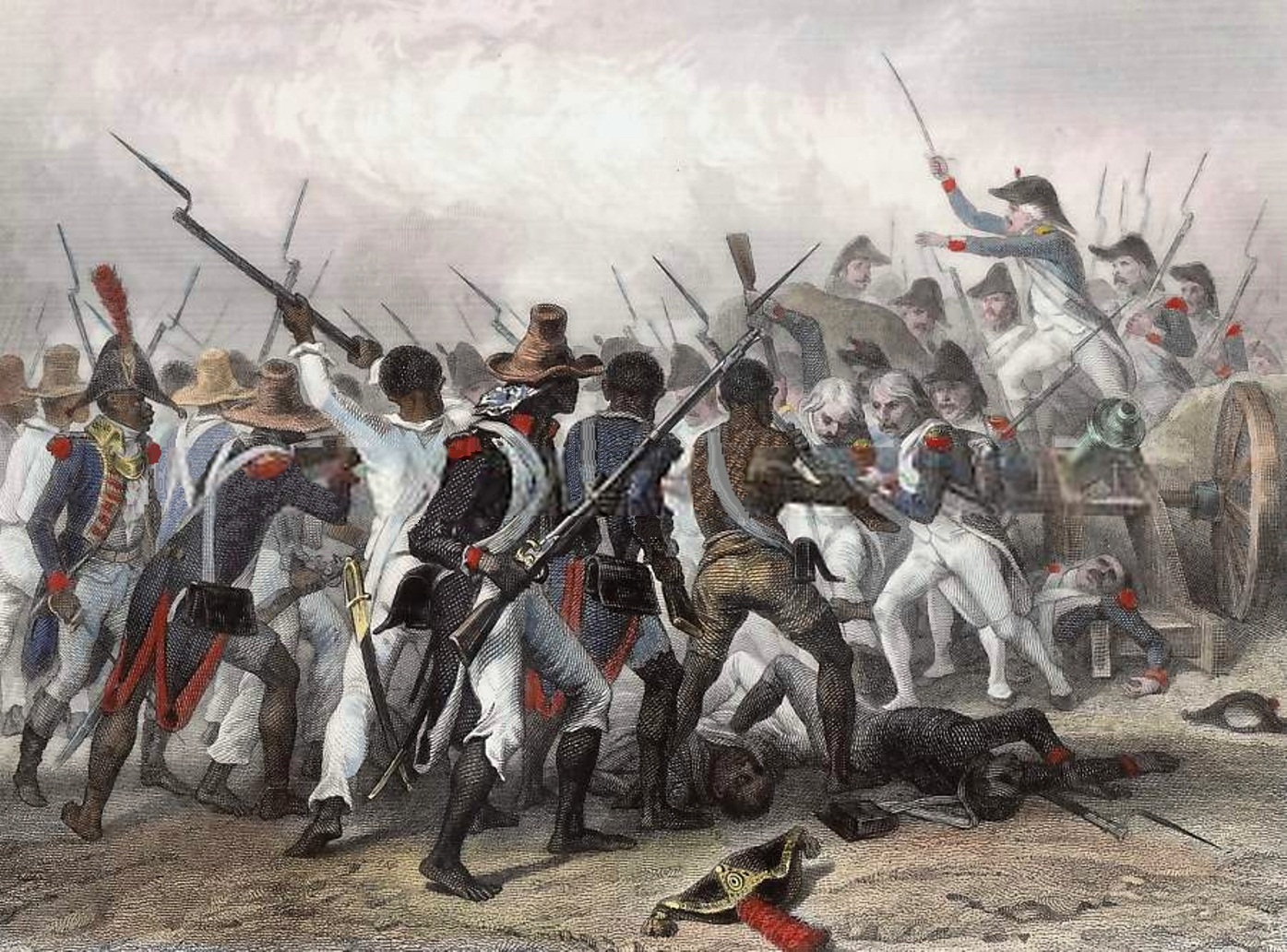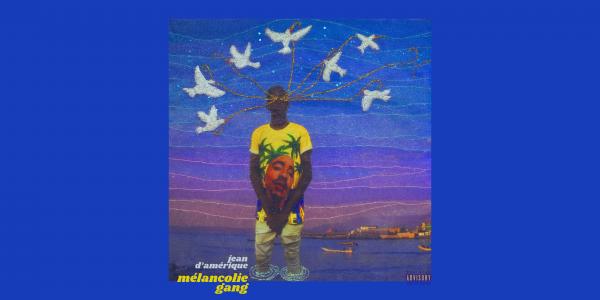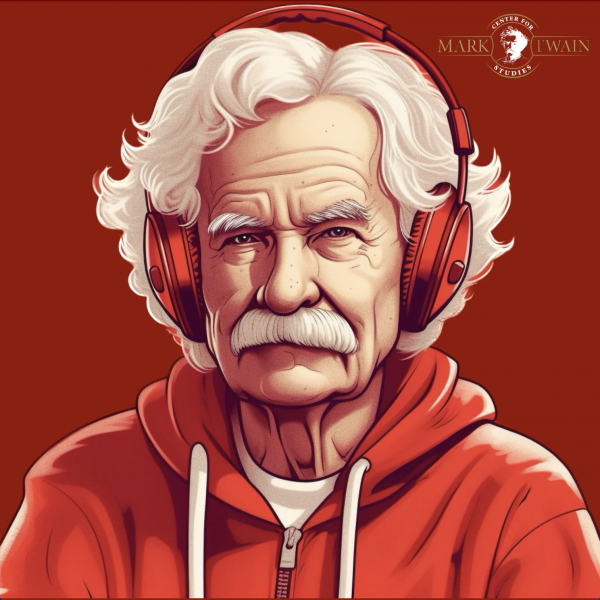Nathan Dize is an assistant professor of French in the Department of Romance Languages and Literatures. A scholar of French Caribbean literature and intellectual history, he recently translated “Antoine of Gommiers” by Haitian novelist Lyonel Trouillot.

Every biography of Napoleon Bonaparte will say that the man was a power-hungry military genius. Many of them will also detail his military campaigns, his ascension to the halls of power in revolutionary France, and his precipitous fall in the wake of Waterloo. What is talked about much less is Napoleon’s colonial legacy in the Caribbean, and Ridley Scott’s latest film is no exception.
In fact, the French leader stoked the flames of Haiti’s anti-slavery revolution by re-establishing slavery in the islands of Martinique and Guadeloupe and ordered 30,000 troops to invade the colony of Saint Domingue (the colonial name for Haiti), leading to a genocidal massacre in the final years of a 13-year struggle for freedom and independence. Yet, as viewers of Ridley Scott’s biopic may have noticed, neither Haiti or Saint-Domingue nor the war for Haitian independence (1791–1804) are mentioned in the film.
There were many opportunities to bring Haitian and Caribbean colonial history into the storyline. Scott and his writers decided to ignore the French colonial backgrounds of characters like Joséphine de Beauharnais (Vanessa Kirby), Joséphine’s maid Lucille (Riana Duce) and General Thomas-Alexandre Dumas (Abubakar Salim), the father of novelist Alexandre Dumas. The latter two are the film’s only Afro-descended characters, and only Lucille has a speaking role.
Scholars, critics and viewers have been quite vocal about the failings of Scott’s $200 million film. Napoleon is part of a larger body of Napoleonic biographies that either avoids or provides only superficial treatment of the Emperor’s re-establishment of slavery in the French empire and the colonial wars in the Caribbean. For instance, Andrew Roberts’ nearly 1000-page LA Times Book Award-winning biography dedicates six whole pages to the affair, mostly to absolve Napoleon of racism and to discuss sister Pauline’s libertine inclinations.
If you are interested in Napoleon’s Caribbean legacy, do not see Scott’s film. I do not have the space (mental or word count) to enumerate the ways in which the director could have told a more global story of Napoleon’s military career or how the Caribbean theater is an essential episode in the First Consul-turned-Emperor’s reign. Instead, head to Spotify or YouTube and listen to Mélancholie Gang (2023), the debut album of polymathic Haitian artist Jean D’Amérique. The bilingual album (Haitian Creole and French) features titles like “Napoleon-Colonist”; “Fanon Blues,” in homage of Frantz Fanon (the late Martinican theorist of the psychic violence of colonial anti-Blackness); and “Blood in My Mouth” that unsettle histories that many take for granted, including the Napoleonic era and its aftermath in Haiti.

“Napoleon-Colonist” provides the album’s most explicit critique of Napoleon Bonaparte. The song builds slowly, starting with a melodic guitar riff and a lurking bass line, before D’Amérique declares: “Colonist […] you’ve always looked to lay waste to my country, today that time is over.” As the song continues, the Haitian rapper explains in his refrain that his revolutionary vision is inspired by real Haitian revolutionaries: Jean-Jacques Dessalines and Sanité Bélair. The rapper is armed with Dessalines’ machete and his anti-colonial dictum: “Cut off their head and burn their houses.” While Dessalines’ legacy is often misunderstood, he led the Haitian army that vanquished the French in the Battle of Vertières on November 18, 1803, winning Haitian independence from France, and served as the nation’s first leader. D’Amérique also channels the rage of Sanité Bélair, one of the many female freedom fighters who fought in the war for Haitian independence, who is the central focus of one of the artist’s award-winning plays. The final verse provides the most damning indictment of France, which robbed independent Haiti of its financial future by forcing the country to pay reparations to colonists to achieve diplomatic recognition in 1825.

Other songs, too, like “Fanon Blues” and “Blood in My Mouth” extend the critique of French colonialism into the present day. In “Fanon Blues,” D’Amérique shares the story of how he was stopped, frisked and harassed by police in Paris. The rapper laments that one day he might become the next Adama Traoré, a 24-year-old Black Frenchman who died in police custody after being pinned to the ground during an arrest and subjected to unjust detention. In “Blood in My Mouth,” the action is set in today’s Port-au-Prince, where gangs and corrupt officials reign, and government systems addled by years of foreign intervention can do nothing to stop the violence. In the music video, a gauze-wrapped cadaver dances through the Haitian capital, choreographed by a thumping bass line and buoyed by the refrain: “I sing for my city over the sound of cartridges, my voice wants to depict my life, but there’s blood in my mouth.” Although Napoleon’s name is nowhere to be found in these songs, the legacies of violence, coercion and militarism that characterized French colonialism and U.S. imperialism are inescapable.
In a short piece authored for the French newspaper Libération in May 2022, the year following France’s “Année Napoléon,” D’Amérique wrote, “On the left side of my chest, I have a country […] a wound and light that dwell in the same gesture.” Pain and glimmers of hope similarly shape D’Amérique’s Mélancholie Gang. They animate the album’s subtle, and overt, critiques of Napoleon Bonaparte and the colonial legacy of France in the Caribbean. This is why, if Ridley Scott’s film has left us too many unresolved questions, we would do well to pop on some headphones, lower the lights and listen to D’Amérique’s 15-track debut.
Headline image: Cover art for Jean D’Amérique’s Mélancholie Gang





